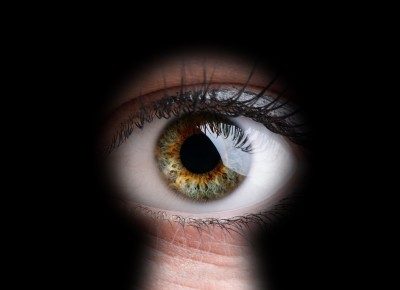You are always making a choice—even if it is to do nothing.
There are days when this seems to be the very furthest thing from reality, where circumstances seem to be conspiring against you and you can’t see any alternatives. Days when it seems as if the best choice for the day is to go back to bed and pull the covers over your head. On days like this, it is easy to feel like you have no control or power and have to succumb to whatever happens to you.
When you find yourself in this mindset, see if you can slow down just a bit and start to see the way your thoughts are constantly streaming in, what they are telling you, and how they are creating your reality and mood. See if you can start to unravel reality from your worries or projections (see our blog: How to Bring Yourself Into the Present Moment), and realize how your thoughts fluctuate with great velocity. You may also begin to understand that you have choices in just about every situation.
You have the power to change your perspective.
You decide how you will wake up, whether to get out of bed, whether to brush your teeth, what to wear, what to eat and drink, and which thoughts to feel, all before you leave the house in the morning. Some of these things can seem so routine that it may not feel like you are making choices. The same can be said for getting up and going to the same job every day, regardless of whether you find it fulfilling. Sometimes your beliefs and conditioning are so ingrained that you think there is no other way to do things, or to think about them.
There is a reason for this. Our brains are constantly assimilating things and putting them into patterns and categories so we can get through the day and make sense of all the information constantly coming at us. Think of what it would be like if we had to relearn everything over and over each day. (Tying our shoes, driving a car, using a phone, etc.) We would be exhausted. This capacity works so well, however, that sometimes it stops us from thinking critically. Our brain’s ability to categorize and generalize becomes automatic from our conditioning and culture, and it’s easy to accept other people’s opinions as our own. We may believe what a parent told us about people who are different from us, that we are smart or stupid, or any number of other things.
It is increasingly rare in this fast-paced life to take the time to stop and consider how our beliefs shape the choices we make—from who we smile at, to what kind of groceries we buy, to how we speak to different people. We may think that we are making rational choices, but it isn’t until we take a step back and become aware of what is behind our choices that we can make new ones.
Just as we make so many simple choices in one day, we also are making choices when we choose to do nothing. It is a choice to go to help others, to have that difficult conversation, and to show-up and be present, just like it is a choice not to do any of these things. These choices make up what our minutes, hours, days, and years will look like, yet seldom do we stop to reflect and consider whether there is a different way to do things.
With awareness, you can realize when you fall into a habitual way of responding to people or situations. You can ask yourself why a certain choice is the best option and whether there any better alternatives. You can start to be more purposeful in your daily interactions and doings, and also start to see that there are multiple opportunities to change the choices you habitually make (if it makes sense) and a multitude of ways to approach things.
You may not be able to change the way other people think, but you are the master of your own thoughts. You can change your perspective and the actions you take to lead a happier life.





